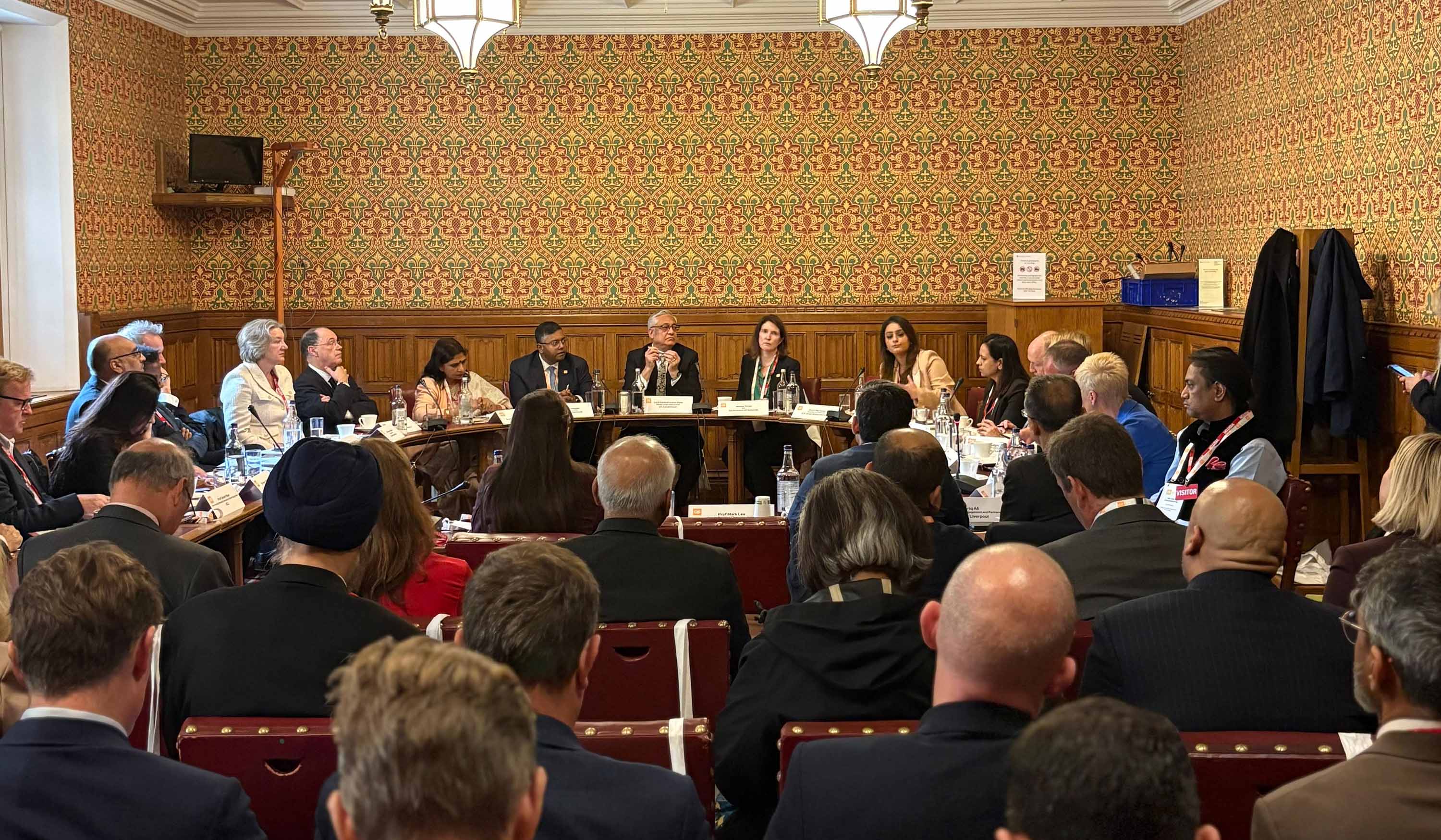Summary:
- The National Education Policy 2020 (NEP 2020) is India’s first education reform in three decades, looking holistically at education.
- The flagship takeaway for higher education is that India aims to increase the gross enrollment ratio in higher education to 50% by 2035. The explicit invitation of quality institutions to set up branch campuses has big implications for the strategies of global institutions.
- For UK institutions, the NEP has enabled other partnership opportunities, such as training programmes and joint degrees.
A new era for global collaboration
Five years since the launch of India’s National Education Policy (NEP) 2020, the focus of international higher education is well and truly on India. As we heard from the British Council at our House of Lords event, upwards of 15 UK institutions are “seriously scoping” the possibility of a branch campus or have meaningfully progressed that process.
To mark half a decade of the NEP, QS experts Dr Ashwin Fernandes, Selma Toohey and Andrew Plant hosted a webinar “Reflections on NEP 2020” to explore the policy’s impact on higher education, and how it sets out to enhance India’s status as a global hub for learning, innovation, and employability.
The NEP 2020 is India's first major educational reform in over three decades, and aims to raise the country's gross enrolment ratio in higher education from 29% to 50% by 2035 – to give a sense of progress, the GER has risen from 26.3% in 2018 to around 29% now.. That target demands bold strategies: from international branch campuses to digital learning models, and, with its emphasis on quality, it is essential that these new initiatives deliver value to its graduates. For institutions worldwide, this presents unprecedented partnership potential. The UK has been amongst the first movers with nine campuses now announced in India, and a reported 15 more being seriously considered.
The first five years, while productive, have caused concern among some Indian higher education leaders. From her discussions at our House of Lords event and at the QS India Summit, Toohey said that Indian vice-chancellors are focused on ensuring that UK-India partnerships “stems ‘brain drain’ and helps create jobs”. The discussion at the House of Lords also emphasised that a partnership with India can no longer be about “exporting young people onto the shores of Britain”, but about forging true, equitable partnerships.
Skills and employability: The next frontier
India has a huge impact on the global skills economy - according to Wheebox, 10 million Indian graduates enter the labour market each year, which, as Plant noted during the webinar, is equivalent to the population of the larger London area.
The NEP actively works to help boost the Indian skills economy by improving the quality of education in Indian institutions, and equip graduates with the skills businesses require. QS research indicates that to meet the NEP's enrolment ambitions, India would need 14 new universities every week until 2035, a figure that really highlights both the scale of the opportunity and the urgency for collaboration.
It’s here that branch campuses offer mutual benefits for UK institutions, and Indian society. International branch campuses increase the capacity of Indian higher education, and enable Indian students to attain their internationally respected degree without having to leave the country.
Quality is key
At the same time, the Indian government has made quality its watchword. Only institutions ranked within the global top 500 are currently eligible to establish international branch campuses, and QS data plays a pivotal role in defining that quality benchmark.
Beyond branch campuses
Dr Fernandes identified other ways UK institutions can partner with Indian higher education, beyond branch campuses – which are not attainable for many. “Quite a few universities are partnering for joint degrees,” he said, adding that research partnerships may prove fruitful, with high levels of private investment into research at Indian institutions.
While online degrees offered by foreign institutions are not currently recognised by the Indian government, Dr Fernandes also identified microcredentials and short online programs as opportunities for partnership, as they could provide valuable skills for a low cost. The University Grants Commission (UGC) has introduced provisions allowing Indian universities to integrate skill-based learning and micro-credentials into their degree programmes. The total credits earned through such courses can count for a maximum of 50% of a degree’s total requirement and in the case of skill universities, this limit may extend to 60%, and in exceptional circumstances, subject to prior UGC approval, up to 70%.
Looking ahead
The NEP continues to drive real change across India, and is helping to position India as a leader in the Global South. However, capacity and quality – two key tenets of the NEP – remain unsolved, so collaboration will define the next chapter. Whether through branch campuses, joint research, executive education, or digital skilling, universities worldwide can play a role in this transformation.









.jpeg)









